Category: Uncategorized
The Olympics of Court Reporting
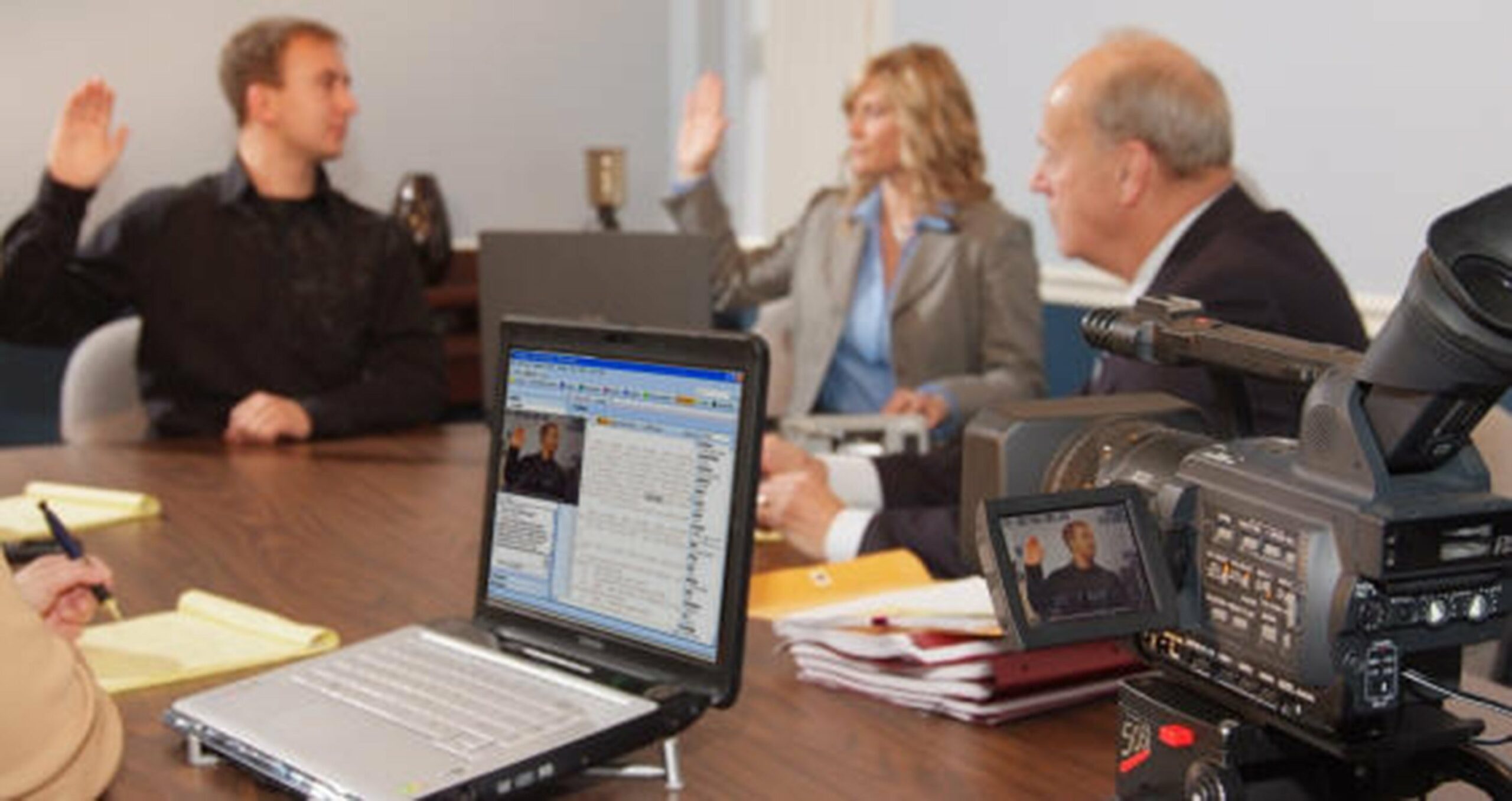
You’re the Witness! Surviving Your Deposition
Whether you’ll be a witness in a case you’re a party to, called by one side or the other to testify about your knowledge, or you’re a corporate representative testifying about corporate practices and records, receiving a Notice of Deposition can be intimidating and anxiety inducing. If you keep these simple tips in mind, you’ll be fully prepared for deposition day and sail through your examination.
1. Do your homework.
Litigation usually involves reams of documents, emails, contracts, calendars, and more. It’s important to review any documents you have that will refresh your memory about topics you’ll be questioned about. If you’re a party to the case, you’ll want to review case filings such as the Complaint, Answer, Interrogatories, and Responses to Interrogatories.
Sometimes a Notice of Deposition will request that you bring certain documents to the deposition. Clearly, you should review those, too, and be sure to give them to your attorney if you are represented by counsel.
If the documents are voluminous, it can be helpful to tab or flag where certain events are referenced or contracts or emails of particular import (keeping in mind that anything written on those tabs will be examined by opposing counsel) so the particulars are easily referenced during the deposition.
Lastly, many attorneys provide their clients with videos or documents that will familiarize you with the deposition procedure. Be sure to review them and pay close attention to the advice given.
2. Conduct a practice deposition.
If you’ve never been deposed before, this is especially important. In a mock deposition, your attorney will ask you likely questions and you’ll have the opportunity to practice your answers. If you ramble then or stumble over the words, it won’t matter. Also, many attorneys use various questioning techniques when preparing their witnesses so the witness can become familiar with potential trick questions or ways the deposing attorney may attempt to fluster them.
3. Image matters.
If your deposition will be videotaped this is even more important. Beyond, obviously, the need to look professional, you need to be aware of how your facial expressions and hand movements can add to or detract from your message.
4. Don’t forget to breathe.
Practicing some relaxation techniques during the deposition will help calm your nerves, and will also help clear your mind and give you an opportunity to think about the full question before starting your answer. If you feel overwhelmed or need an extra minute to think, just let the attorney know that you need a break. They’ll understand.
5. Just the facts.
It’s extremely important to answer only the question you’re asked – and only with facts. Don’t guess or speculate or assume, since those assumptions can be used later to imply that you lied or were otherwise deceptive.
Even expert witnesses – and many attorneys – get a little nervous before a deposition. It’s natural. Hopefully these tips will ease your pre-deposition jitters. (Friendly court reporters, like ours at Durham Court Reporting, can also help!)
The Olympics of Court Reporting

Receiving an electronic transcript in PDF format has become an industry standard because of the ease of access and portability such files offer, but there are numerous other benefits PDF files offer that can assist with all aspects of trial preparation.
At Legal Media Experts, we use YesLaw to create PDF versions of a transcript.YesLaw’s PDF transcripts contain these additional features:
• Copy and paste from a transcript without affecting the official document
• Click a word in the index and be taken to that page in the transcript
• Click on any exhibit in the index and be taken to that page in the transcript
While the free Adobe Reader allows you to read the transcript and offers basic functionality, with the paid Adobe Acroabat software you can do much, much more, such as:
• Insert new pages into a PDF and eliminate pages
• Reorder pages
• Rotate pages
• Add Bates stamps to documents
• Zoom in on small text
• Highlight important text passages
• Search for text
• Redact sensitive information
• Tag important pages so you can quickly find them later
• Make notes in the margins
• Advanced Features
How are all of these useful? Here’s a quick example. While preparing for trial you can create separate PDF files to highlight the facts and circumstances you want to bring out, divided by topic. Say it’s a medical malpractice case. You can create a separate file for each point you want to make to the jury, composed of transcript pages from various depositions – with the important text passages highlighted so that during the trial you’ll be sure to touch on them all.
Another example would be in the case of a hearing on a motion. Using Adobe Acrobat you can tag important pages as you read through transcripts. Then, you can go back to those pages when creating your brief, highlighting the relevant passages, and merge only those pages into one PDF file. Then you can add Bates numbers or other page numbers to that document.
As part of our Green Transcript Package, all of our deposition transcripts are delivered in YesLaw PDF format. To schedule your next deposition, use our easy online scheduling tool or call 919-682-7757.
The Olympics of Court Reporting
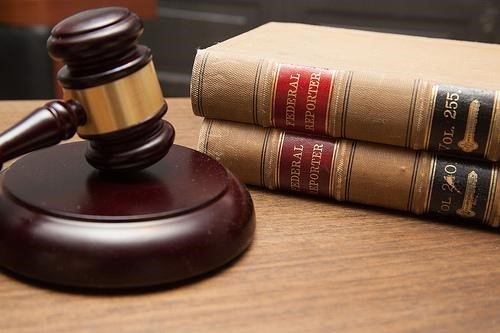
Court reporters and paralegals are expected to stay up-to-date on everything in their fields, including technology. Here are five skills that are essential for professional court reporters and paralegals.
1. Word Processing, Spreadsheets and Presentation Software
Whether you’re a court reporter working on a deposition transcript or a paralegal preparing a discovery request, document creation is a large part of your day-to-day responsibilities. Microsoft Office is the most common software suite used in the legal community, but a good number of court reporters still use WordPerfect. You’ll also want to know the basics of using Open Office and Google’s word processing and spreadsheet apps.
2. Electronic Scanners & Apps
It’s rare for physical documents to be mass-copied and distributed these days, so it’s imperative to know how to use electronic scanners and smartphone-based scanning apps. For court reporters, having a smartphone-based scanning app at the ready ensures you’ll be able to “copy” exhibits if the witness wants to retain the original (assuming counsel agree) and to keep up with business cards.
3. Videoconferencing
A videoconference is a live visual and audio connection between two or more people who are in separate locations. It’s increasingly common for depositions to take place by video conference to eliminate travel time. Both paralegals and court reporters will be called upon to operate video conferencing equipment and software fairly regularly.
4. Electronic Case Filing
Many courts now use electronic systems that allow case documents, such as pleadings, motions and petitions, to be filed with the court using a computer and Internet connection. This process gives the courts a way to easily manage electronic files. Court reporters are sometimes asked to file deposition transcripts directly with the court, so be sure you understand what is used in your jurisdiction.
5. Internet Research
As a legal professional you’ll come across lots of unfamiliar terms, whether they’re legal, medical, technical, or even proper names. Understanding how to use Google and academic research tools will give you a leg up and keep you from looking not-so-smart.
In addition to possessing these skills, it’s vitally important to become familiar with and proficient in using new technologies as they emerge and to update/upgrade your equipment regularly. You don’t want to be the person having to learn Windows for the first time in 2019 because you haven’t updated your DOS computer.
At Durham Court Reporting, we are committed to staying on the cutting edge of technology. To schedule a deposition, conference room, legal videographer, or videoconference, use our online form or call 919-682-7757.
The Olympics of Court Reporting
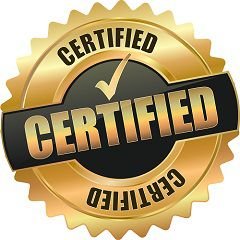
The court reporting profession is a viable career choice that doesn’t require a four-year college degree and yet offers the potential for a good salary, flexible schedule, and interesting venues. Court reporters rely on the latest in technology to capture the spoken word and translate it into written text. Court reporting professionals work in a wide variety of settings, including reporting legal proceedings in and out of the courtroom, reporting depositions, providing live captioning of events, assisting members of the deaf and hard-of-hearing communities with gaining access to educational opportunities, and more. The profession is also attractive because there’s an increasing demand for more court reporters and, in some areas, a court reporting shortage.
There are three methods of court reporting, each of which has its own training program and certification:
• Digital/Electronic (certification provided through AAERT)
• Stenotype (certification provided through NCRA)
• Voice Recognition(certification provided through NVRA)
Some states have their own certification/licensure test, while others accept certification from a national professional association as proof of a reporter’s training and competence. A small number of states have no licensing or certification requirement at all for freelance court reporters. However, as National Court Reporting Association (NCRA) President Sue A. Terry said:
“Earning a professional certification is one of the greatest investments we can make in ourselves as we strive to be the very best we can be every day.”
Obtaining a professional certification signals a court reporter’s proficiency and skill to other reporters and to the public, but that’s not the only reason court reporters take that step: earning a certification can also greatly impact a court reporter’s bottom line. Numerous membership surveys conducted by the NCRA have found that court reporters and legal videographers who hold certifications both make more money and are often in higher demand than their competitors.
Durham Court Reporting proudly provides certified professional court reporting services in North Carolina. Schedule one of our professional court reporters today using our online scheduler or by calling 919-682-7757.
The Olympics of Court Reporting
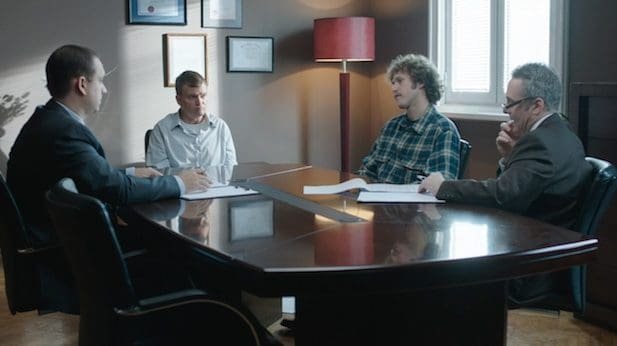
A deposition is a process in which witnesses provide sworn evidence. Depositions used to gather pretrial information, specifically to discover what a witness may know and to preserve that testimony for later use in court. Depositions are usually held in an attorney’s office and are conducted in the presence of a court reporter, who maintains a verbatim record of everything said during the deposition. The person being deposed is placed under oath and must answer all questions posed by the deposing attorney. Deposition questions vary on a case-by-case basis, but introductory, background and deposition preparation questions are fairly standard across the board.
Introductory Questions
Introductory questions serve two purposes. First, they help put the witness at ease and second, the responses help keep the witness honest at trial. Commonly asked preliminary questions include the following:
• Do you understand that you are under oath? And that being under oath means you are sworn to tell the truth?
• Have you ever had your deposition taken in the past?
• Do you understand that your responses here have the same force as in a courtroom with a judge and jury?
• You aren’t taking any medications that will prevent your answering my questions?
• You will let me know if you don’t understand one of my questions?
• If you need to take a break at any time, just tell me and we’ll take a break. Is that okay?
These questions are meant to protect both the deponent and the questioning attorney, ensuring that both individuals are prepared for the deposition and that each understands the implications of a sworn oath.
Basic Background Questions
Once preliminary responses have been recorded, the attorney conducting the depositions will go into specific questions concerning personal information and historical background. These questions are broken into five categories.
Identification
• What is your full name?
• Have you ever used any other names? Maiden name?
• Do you have any nicknames? What are they?
• What is your date of birth? Where were you born?
• What is your age?
Residential History
• What is your current address?
• How long have you lived there?
• Where have you lived previously? For how long?
Marital History
• Have you ever been married?
• What is your spouse’s name? Occupation? Where employed?
• Do you have children? Are they employed? If so, where?
Educational History
• Where do/did you attend school?
• What level of education do you have?
• What schools or colleges have you attended?Did you finish? Why not?
• What degrees do you hold?
Legal History
• Have you ever been arrested? When? Why?
• Have you ever been convicted of a crime? If yes, of which crime? Sentence?
• Have you been involved in any other legal claims or lawsuits? When? Where?
Deposition Preparation Questions
The deposing attorney is allowed to question the witness as to how they prepared for the deposition. Common questions in this vein include:
• How did you prepare for this deposition?
• Have you spoken to anyone other than your counsel about this case? If so, whom?
• What specifically was discussed?
• What documents pertaining to the case have you reviewed?
• Did you meet with counsel for the other side prior to this deposition?
Following these common questions, the deposing attorney will ask very specific case-related questions. However, deponents who are familiar with these questions and prepared with honest answers will usually fare better in the case related portion of the deposition.
To schedule your next deposition with Durham Court Reporting, call us at (919) 682-7757 or book online now.
The Olympics of Court Reporting
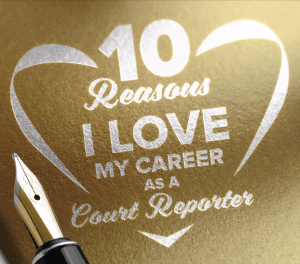
Court reporting is becoming an increasingly attractive
career choice. There is a well-publicized shortage of court reporters, the
training time can be relatively short and inexpensive, wages are above-average,
and the varying types of court reporting allow for flexibility throughout one’s
career.
If you’re interested in becoming a court reporter, how will
you know if you have what it takes to be successful?
First, you have to know what is expected of a court reporter.
A court reporter’s primary responsibility is to record the spoken word as
quickly and as accurately as possible, no matter how technical the testimony
is. They must also deliver an accurate, verbatim transcript to attorneys or
appellate courts by a specified deadline – sometimes overnight.
Regardless of whether a court reporter works in a courtroom,
a hearing room, or in freelance depositions, schedules can change quickly. A
courtroom-based reporter might be asked to stay late at the last minute because
a jury is deliberating, or to come in early the next day to accommodate a
witness schedule. A freelance court reporter’s deposition schedule can change
multiple times throughout a week. Depositions can cancel at the last minute, or
transcript orders can be expedited with no prior warning.
Court reporters are expected to roll with these changes with
professionalism and while still providing a high-quality product.
Knowing these expectations, it’s easy to see why the following
traits are commonly found in the most successful court reporters:
If you have these traits, you should consider a career as a
court reporter – we need you!
- Strong grammar and punctuation
skills. - Strong work ethic and discipline.
- Thirst for learning;
intellectually curious. - Tech-savvy, ability to keep up
with changing technology. - Thrive under pressure; able to
meet short deadlines. - Adaptable.
- Detail-oriented.
- Excellent,
wide-ranging vocabulary (and ability to quickly learn new terminology) - Excellent Listener
Another interesting commonality among successful court
reporters is that many of them play a musical instrument, specifically the
piano.
If you have these traits, you should consider a career as a
court reporter – we need you!
The Olympics of Court Reporting

Whether you’re an attorney, a paralegal, a court reporting
student, or a lay person who’s (willingly or unwillingly) become involved in a
legal proceeding, you know that there’s a lot of legal terminology and acronyms
to be familiar with. When working with a court reporter, you’ll encounter
additional terminology and acronyms that you might not have heard of before. Here
are some terms you might encounter in a deposition, a courtroom, or in
conversation with your court reporter.
·
Affidavit – A written declaration made under
oath before a notary public or other authorized officer.
·
ASCII – A computer term which stands for
American Standard Code for Information Interchange. Many litigation support
software programs require transcripts to be added in ASCII form, to preserve
the original page and line numbering and other formatting.
·
CAT – Computer Aided Transcription.
·
Certificate Page – The last page to appear
within a transcript, dated and signed by the court reporter who took the matter,
attesting that the transcript is true and correct.
·
Certified Question – A question extracted from a
deposition and transcribed by the reporter to be taken to a judge having
jurisdiction in the matter for a ruling.
·
Condensed Transcript – A miniaturized copy of
the original transcript printed in such a way as to place multiple pages of
transcript on a single sheet of paper, usually four transcript pages on one
letter-sized sheet of paper.
·
CSR – Certified Shorthand Reporter, a
designation granted by the National Court Reporters Association and various
state licensing boards.
·
CVR – Certified Verbatim Reporter, a designation
granted by the National Verbatim Reporters Association.
·
Deponent – A person who testifies under oath.
The person answers questions put to him, and these questions and his answers
are recorded in shorthand by the court reporter.
·
Errata Sheet – A page separate from the
transcript upon which a deponent is permitted to correct any errors he or she
claims are present in a transcript.
·
E-Tran – Short for E-Transcript, which is a
product sold by RealLegal, but which can also be used to refer to any type of
electronically-delivered transcript.
·
Exhibit – Document, object, etc., shown in court
as evidence. Exhibits are marked with an identifying number by the court
reporter and then indexed and described in the transcript of the proceedings.
·
Expedite – An expedite is a job that has been
explicitly ordered by one of the attorneys at a deposition to be delivered
sooner than normal in exchange for an increased fee.
·
Expert Witness – A type of witness who gives
testimony in relation to some scientific, technical, or professional matter.
·
Freelance Reporter – A self-employed reporter or
one who works for an agency to report depositions and other proceedings as a
subcontractor.
·
Interrogatory – A formal or written question, or
series of questions, which must be answered under oath.
·
Official Reporter – A reporter who works in a
courtroom setting or does reporting for governmental agencies.
·
Parenthetical – An expression or statement added
to a transcript by the reporter to explain non-verbal situations or movements
which occur during a proceeding.
·
Protective Order – An order issued by a court to
permit one party to temporarily hold back certain documents or information, or
to protect a person from harassment or service of process, may also be used
when interrogatories or requests for production are oppressive or burdensome.
·
Readback – When the court reporter reads a prior
question or answer back, from their stenographic notes, to deposition
participants or to the Court. The reporter may be requested to read back
portions of testimony following an objection, when a question needs to be
rephrased, or following a brief recess in the proceedings.
·
Read & Sign – Deposition witnesses have the
right to read the prepared transcript and sign an errata sheet either stating
that the transcript is accurate, or listing any corrections by page and line
number.
·
Reporter’s Worksheet – A pre-printed worksheet a
court reporter uses at a deposition to note appearances of counsel, other
people attending, start and stop times, objections, and any other special
instructions from counsel.
·
Rough Transcript – A transcript which is not
fully edited and may contain errors; does not include a title page, appearance
page, or certificate page, but should contain a disclaimer and header or footer
stating that it is a rough draft.
·
Stipulations – Agreements among counsel as to
certain things that occur at the beginning of a deposition, a motion hearing,
or trial.
·
Subpoena – A court order for a witness to
appear.
·
Subpoena Duces Tecum – A court order for a
witness to appear and produce specified documents at a set time and place.
Our helpful and professional reporters and office staff are
always here to help decipher court reporting terminology and answer your
questions. Schedule your next deposition online or by calling 919-682-7757 today!
The Olympics of Court Reporting
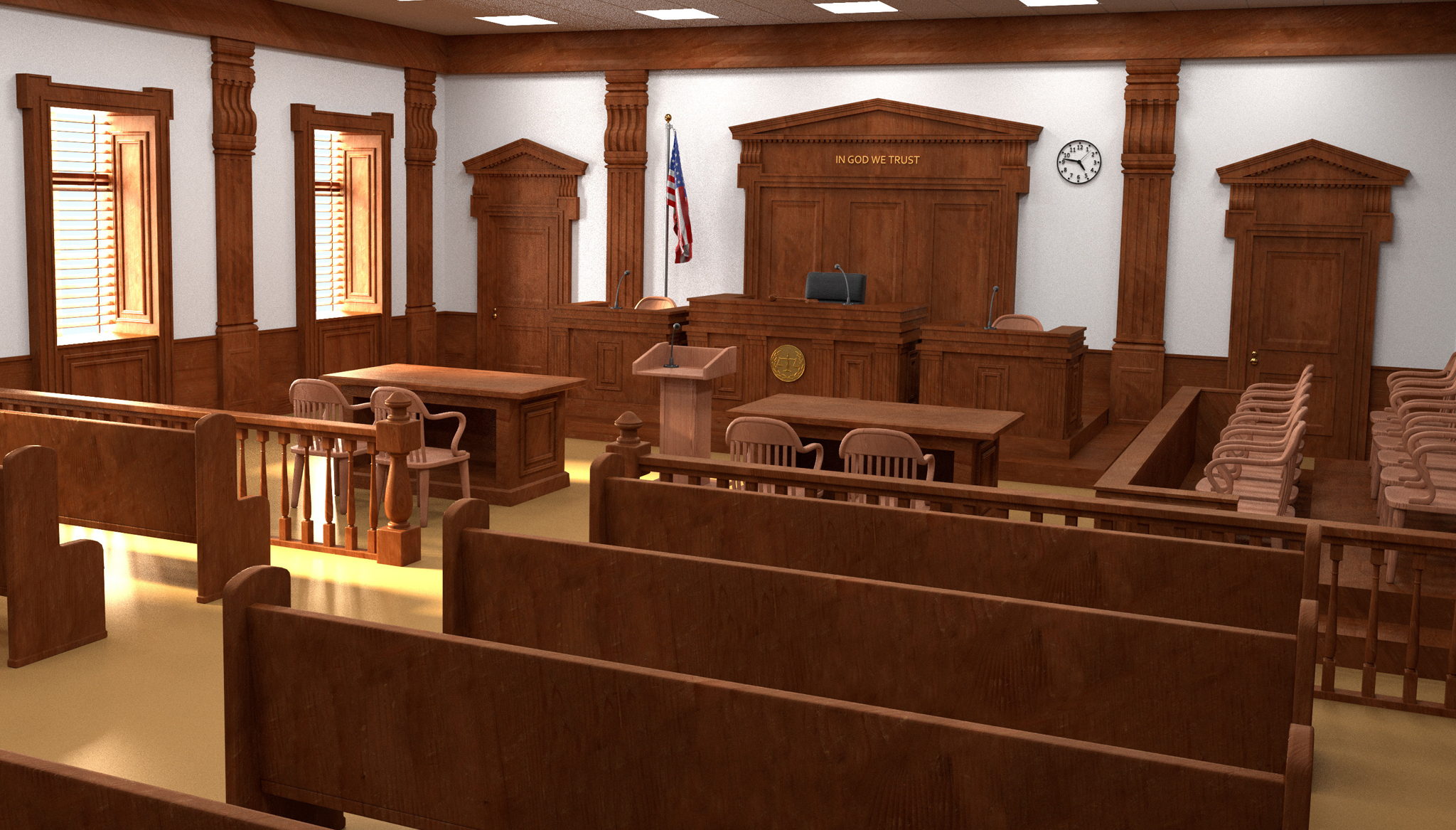
District Court proceedings in North Carolina, both civil and
criminal, are recorded digitally without a court reporter present. The
courtrooms are outfitted with recording equipment operated by the courtroom
clerk, who starts and stops the equipment and notes in the digital file when each
case is called, witnesses are sworn, and exhibits are introduced. Microphones
are placed at each counsel table, the witness stand, and the bench.
When one party needs to have an official transcript for
appellate or other purposes, they obtain the audio files from the clerk and
must contract with a court-approved transcriptionist to create the official
transcript of proceedings.
There have been numerous issues with the quality of
transcripts produced from these audio recordings. When attorneys or witnesses
are speaking over each other, or aren’t near one of the microphones, or if
there is some type of audio interference, and the transcriptionist can’t be
sure of what was said, they mark that section “inaudible” in the
transcript. On occasion, the recording equipment malfunctions and nothing is
recorded.
Having a professional court reporter present would avoid
these issues, but there are a few things attorneys can do to ensure that they get
the highest quality recording possible when arguing a motion or trying a case
in District Court.
1. Don’t tap your fingers on the table.
2. Keep your phone off the table. If you absolutely must
have it there, make sure it’s not set to “vibrate.”
3. Don’t shuffle papers in front of the mic.
4. Be aware that your side conversations will be picked up
by the mic unless you mute it.
5. Make your arguments in front of the mic, not wandering
around the courtroom.
6. If you read from a document, don’t bury your head in the
document or mumble.
7. Instruct your clients to follow the same rules.
When you contract with a transcriptionist to create an
official transcript, it’s helpful to provide them with some of the pleadings in
the case so they will have the proper spellings of witness names, addresses,
business names, and other terminology that might be used in the hearing or
trial. Usually courtroom court reporters will look through pleadings during
breaks, but a transcriptionist doesn’t have the opportunity to do that.
Durham Court Reporting has approved transcriptionists on staff
and can assist you in having a District Court transcript created. Call us at 919-682-7757 to inquire more about District Court transcription.
The Olympics of Court Reporting
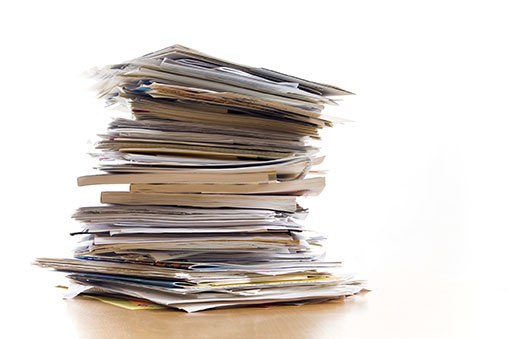
Nearly every deposition has at least one exhibit marked
during it, and, believe it or not, there are good and bad ways to handle the
use of exhibits in depositions to ensure an easily readable transcript and
minimize confusion.
A little bit of preparation before the deposition goes a
long way. Bring a file folder with your anticipated exhibits, collated (a copy
for you, a copy for the witness, and a copy for opposing counsel) so you don’t
have to shuffle papers and frantically look for the right exhibit (which also
could take you off of your mental game).
When you need to have the exhibit marked, be sure to pause
to allow the court reporter enough time to mark the exhibit and note it in the
exhibit log. To mark the exhibit, the court reporter has to take their focus
off of taking down the testimony, so it’s important to pause.
Once the exhibit is marked and questioning resumes, if you
quote from the exhibit, make every effort to not intersperse side commentary
with the material you’re quoting. This will assist in making the transcript
easily understandable by those who weren’t there or who don’t have the benefit
of having the exhibit in front of them.
Finally, when you’ve finished with one exhibit, instruct the
witness to either hand the exhibit to the court reporter or to start creating a
pile of marked exhibits. At the end of the deposition the court reporter has to
ensure they have all of the original exhibits to attach to the certified final
transcript, and it’s not an uncommon occurrence for a witness to accidentally
leave the deposition with a few original exhibits in their possession. This
causes a hassle for all involved and can cause a delay in getting the certified
final transcript to the taking attorney.
Call Durham Court Reporting now to book your next deposition: 919-682-7757 or you can easily book online with our online scheduler: https://durhamcourtreporting.com/schedule
The Olympics of Court Reporting
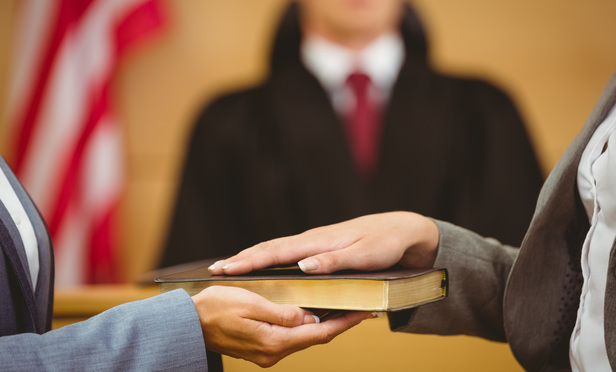
So, you’ve received a subpoena to
give a deposition. Depending on whether you’re a party to the case, and what
type of case it is, this can either be a very stressful thought or a slight
inconvenience. Knowing how to prepare can take some of the stress out of it,
though.
One of our court reporters was subpoenaed to give a
deposition in a family member’s medical malpractice case. Here’s how she
prepared and what she would have done differently.
“I had been the
reporter in hundreds of depositions and in the courtroom and thought that
switching to the witness seat would be so easy. In some ways, it was, but it
was eye-opening.
I made sure to get a
good night’s sleep the night before the deposition and to give myself plenty of
time to get to the attorney’s office. The last thing I wanted was extra stress of getting stuck in traffic, and I wanted to
have a few minutes to relax once I arrived. I wore comfortable clothes, so I
wouldn’t be distracted by being uncomfortable.
I made sure to take my
vitamins, and didn’t eat anything for breakfast that might give me any
digestive problems.
Once I was in the
conference room and was sworn in, I had to remind myself to speak slowly so the
court reporter could capture my testimony, and to not interrupt the attorney.
Some attorneys take long pauses during a question, so I had to make sure they
were finished before I started replying.
It’s natural to want
to explain an answer, but sometimes the answer gets lost in the explaining. I
had to remind myself to answer yes or no to a question, and then add any extra
information needed to clarify my answer. Attorneys on both sides appreciate
having the yes or no clearly stated. If either attorney wants more information
after your brief answer, they’ll ask for it.
Taking a breath and
pausing for a moment to repeat the question in my head before answering helped
me to stay on topic.
It was interesting to
be in another role in a deposition and to see what it’s like in the witness
chair.”
Some other tips to help you
prepare for the big day:
- ·
Read your subpoena or notice to see if there are
documents or photos they’ve asked you to bring. Start locating those
immediately. - ·
If you tend to get cold, bring a light sweater.
Conference rooms can get cold. - ·
Make sure to pause before answering the
question, in case another attorney wants to state an objection. - ·
Don’t guess when you answer a question. Only
testify to what you know for sure.
Remember, the attorneys simply
want to know what you know about the
matters at issue, and don’t expect you to know everything. With a little
preparation, and a few deep breaths, you’ll have nothing to worry about.